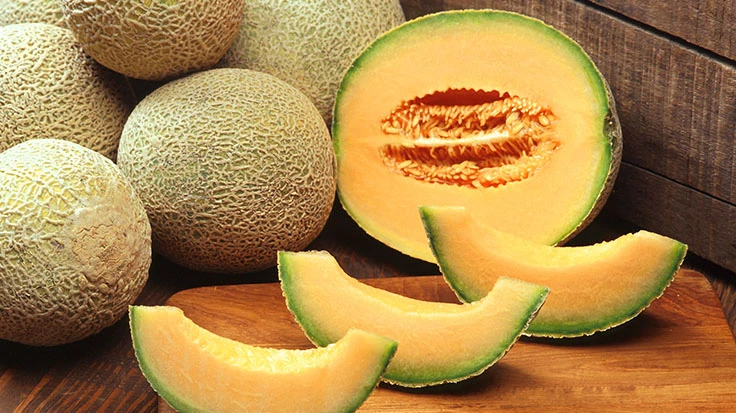
ContagionLive - According to new research, applying antimicrobial coatings to whole cantaloupes during storage significantly reduces contamination by pathogenic bacteria, and has the potential to improve their microbiological safety and extend their shelf life. Qiumin Ma, PhD, from the University of Tennessee in Knoxville, and colleagues published the results of their study in the International Journal of Food Microbiology.
Chitosan-based coatings “significantly inhibited the growth of E. coli O157:H7, L. monocytogenes and S. enterica cocktails on whole cantaloupes during 14-day storage at ambient temperature (21°C),” the authors wrote. “Coatings also significantly reduced total mold and yeast counts on whole cantaloupes.”
Chitosan, derived from the polysaccharide chitin, is known to have film-forming properties as well as antimicrobial activity. Chitosan-based coatings have also been shown to improve food safety in fresh produce. With this in mind, Dr. Ma and colleagues conducted a study to investigate the efficacy of such antimicrobial coatings in reducing bacterial populations from the surface of cantaloupes. In addition to chitosan, they investigated two GRAS antimicrobials—lauric arginate and cinnamon oil, along with ethylenediaminetetraacetic acid (EDTA).
Read the full article at ContagionLive.
Access the study at NCBI.
Latest from Quality Assurance & Food Safety
- Chef Robotics Introduces Pat-Down Capability for Meal Presentation and Sealing
- USDA Launches Regenerative Pilot Program
- Indoor Ag-Con Adds Food Safety Track to Conference Lineup
- IDFA Recognizes Federal Officials for Support of U.S. Dairy Industry
- Tetra Pak Acquires Bioreactors.net
- Fresh Del Monte Receives Rabobank Leadership Award
- São Paulo Earns Guinness World Record for Largest Municipal Food Security Program
- KPM Analytics Releases Ready-to-Use NIR Calibration Packages





